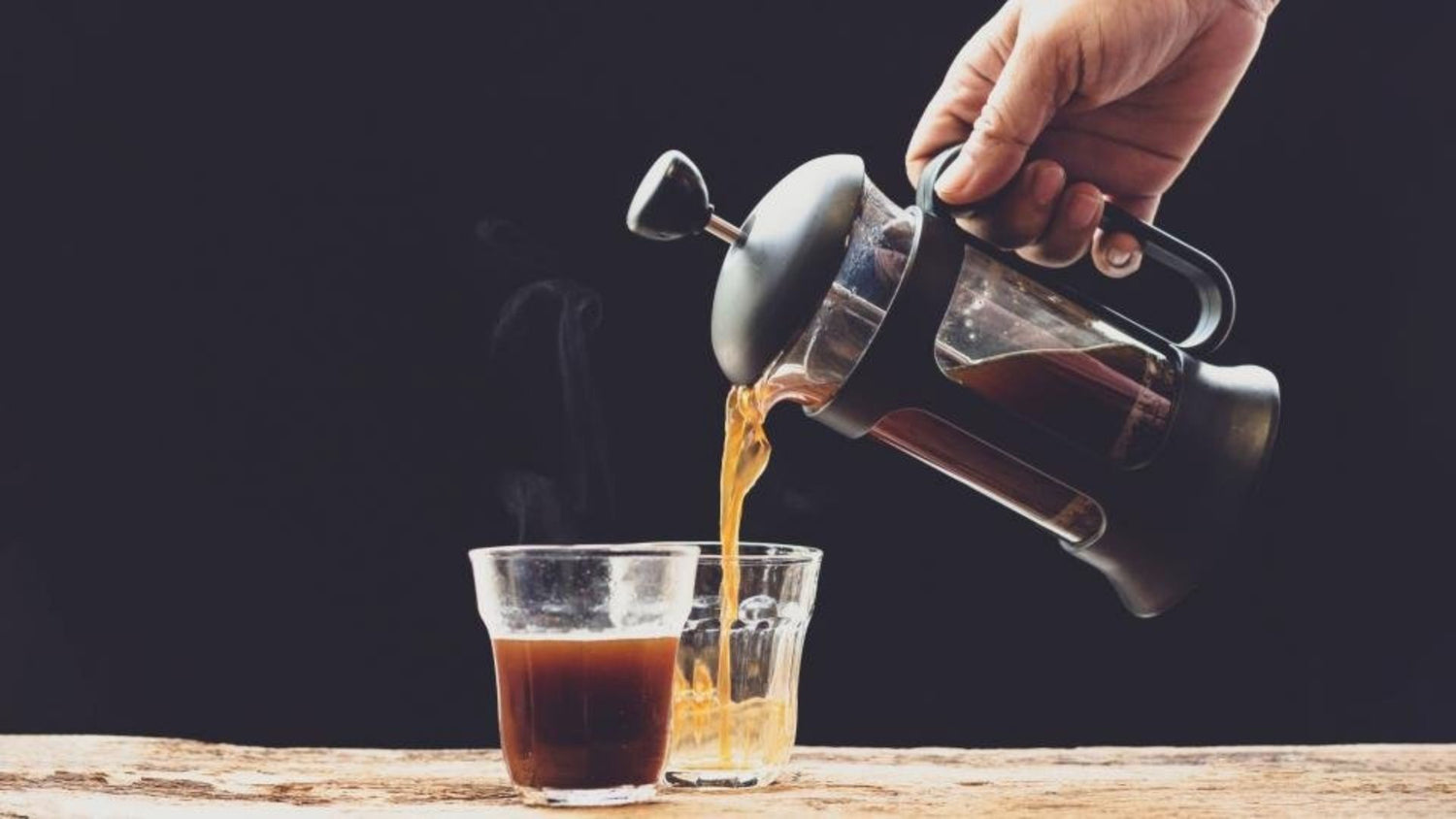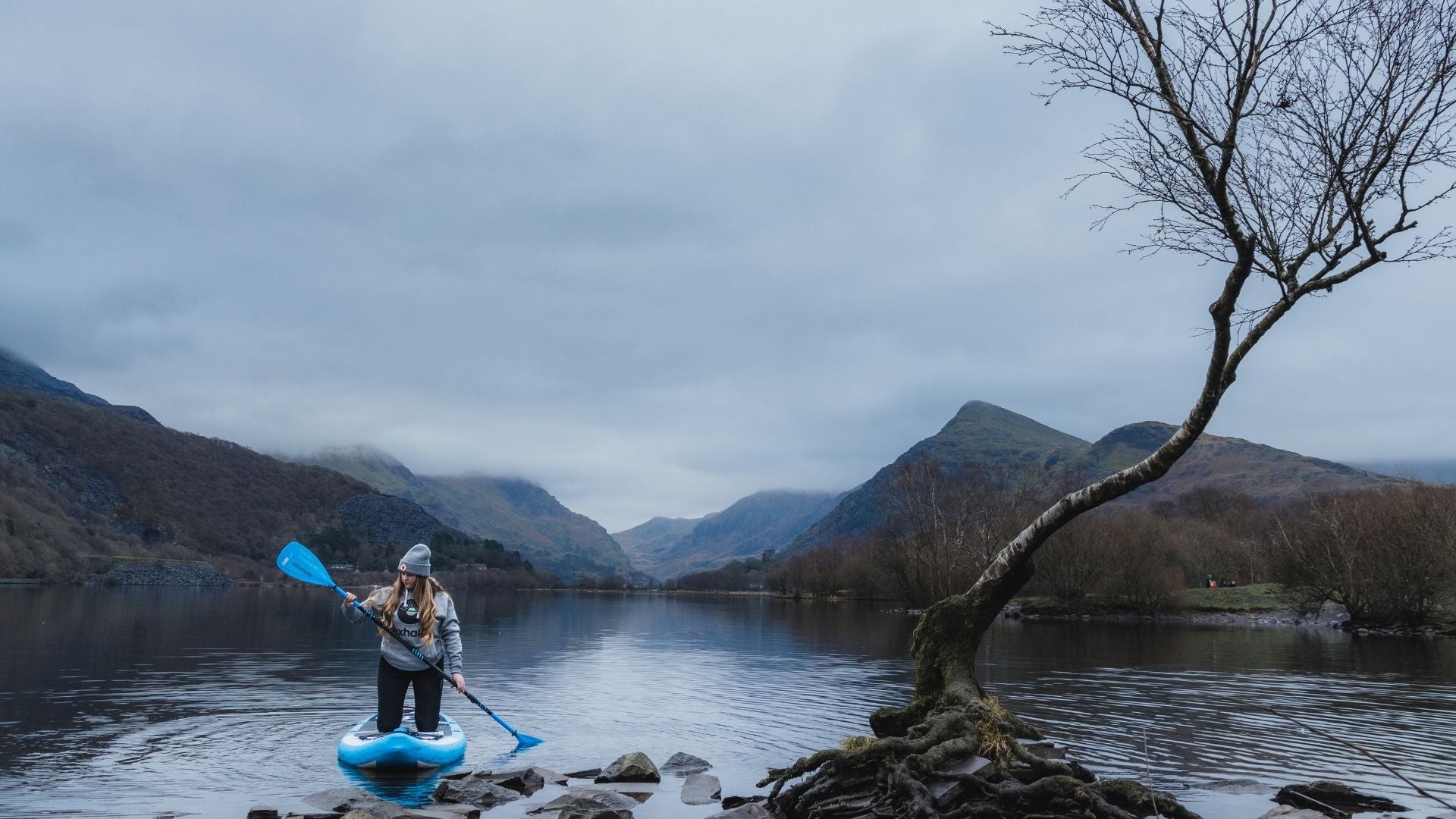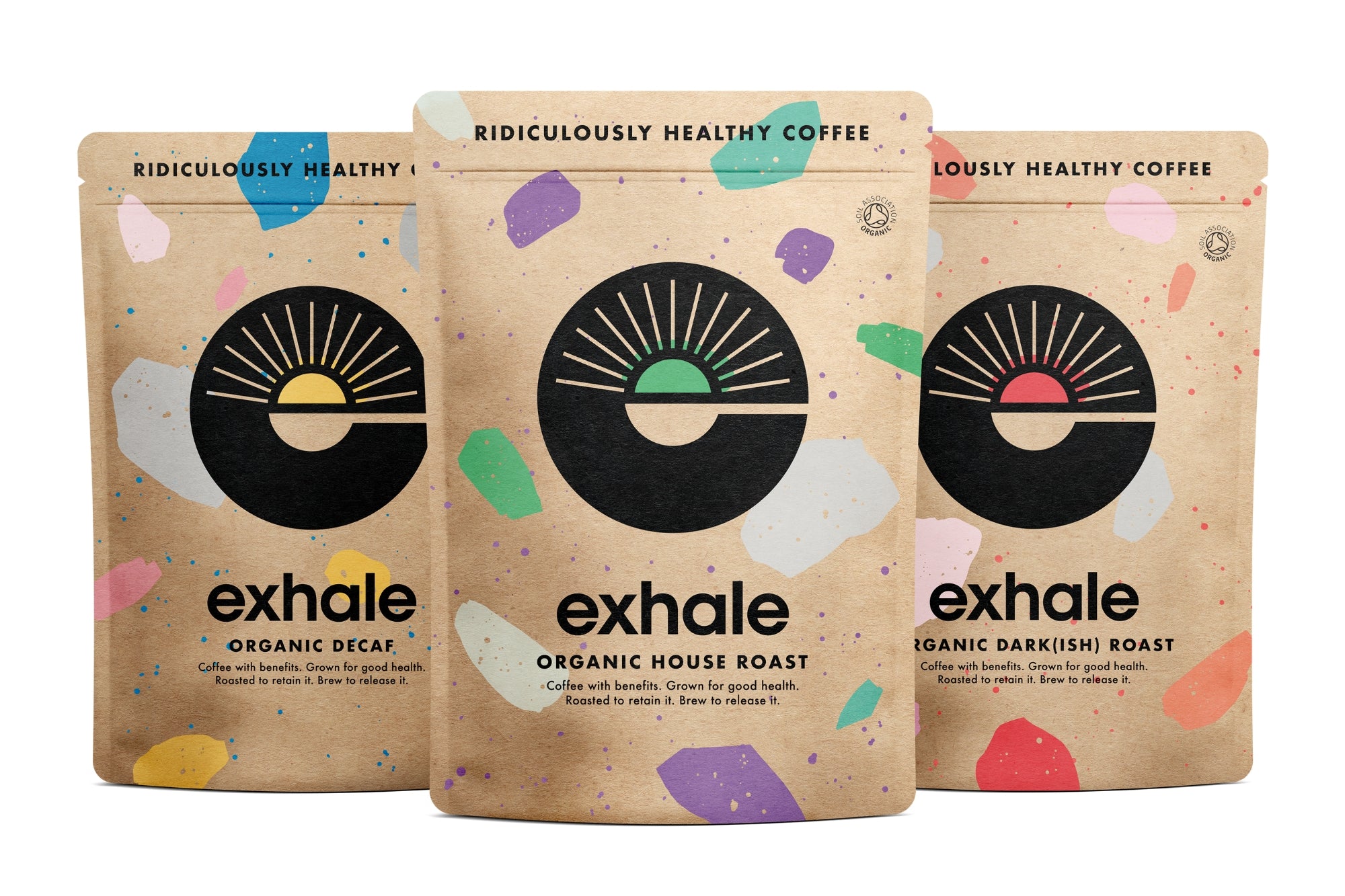We take the plunge (sorry) and share our top tips for brewing coffee with a cafetiere to get the best balance of flavour and health.
Brewing with a cafetiere is often overlooked. Maybe because there’s one lurking in the back of everyone’s cupboard, from nanas to students.
But actually, rather than being a “basic brew”, we think of it more as a classic. And it’s a got a lot going for it.
- It’s accessible – both from a cost stand point, and from the fact that you can pick one up pretty much anywhere.
- It’s also more eco-friendly, as you don’t need any separate filters, or anything disposable at all.
- Sociably, it’s a lovely way to brew coffee. You can have a chat while you’re doing it, and the standard size is perfect to share.
- And, most importantly, it’s simple. Not every brewing technique needs to feel like a science experiment (although that can be fun).
We had a chat with Emma from the coffee consultancy, Caffeina to get her tips on mastering the art of brewing with a cafetiere. There are a few things you need to pay attention to:
- How much coffee you use
- The type of grind
- How long you brew it for
The basic recipe for a good brew using a cafetiere
- Using filtered water, boil using a standard kettle and set aside for a couple of minutes
- Weigh out 19g or 2tbsps of medium ground coffee (freshly ground if you can)
- Fill with 350g water (weighed out if possible – think of coffee like baking a cake, it’s all about precision!)
- Brew for 3-4 minutes Plunge gently and enjoy
The precision piece is important here. Even if weighing your coffee and water sounds like overkill –it explains why sometimes you get a brew that’s not quite right. A splash more water, a heaped vs a flat tablespoon, a different brew time all affect the flavour of the end result.
As a general rule, the longer you brew, the stronger the coffee. If it tastes a bit wishy-washy, the likelihood is that you haven’t allowed enough time for the water and coffee ground to infuse together – and the coffee is under extracted. This can sometimes taste a bit sour.
If your coffee has gone the other way and it’s tasting too bitter, then it’s been over brewed.
You’re looking for a balanced, full flavour.
Making the healthiest coffee in a cafetiere
Fun fact: We did all our lab testing on cafetière-brewed coffee.
When Dr Jan at Knight Scientific conducted our antioxidant tests, she brewed it to our instructions:
- Add 17g medium ground coffee to a small cafetiere
- Add hot water 30 seconds off the boil
- Stir after 30 seconds
- Plunge after 4 minutes
That’s where she found that 1 cup of exhale coffee has the equivalent antioxidant power of 12 punnets of blueberries, or 55 oranges. All in one single, brewed cup!
What’s the healthiest way to brew coffee?
No studies are massively conclusive on this. But what we do know is that extracting polyphenols is a chemical reaction and just like any chemical reaction it's controllable by the same few variables.
So, if you want to speed up that reaction to extract the polyphenols from coffee (the extraction reaction as we've ingeniously nicknamed it), there are a few things you can tweak to in theory give you a healthier cup of coffee
1. You can use a finer grind size, increasing the surface area of the coffee for a more efficient extraction reaction.
2. Hotter water would also speed up the extraction reaction - which could be why we got these results using water 30 seconds off the boil vs Emma’s couple of minutes off the boil.
3. Steeping for longer would give more time there is for the extraction reaction to happen - which is why we say 4 minutes minimum, but ideally 4-5 depending on personal taste preference.
Beyond that though, it’s a question of taste vs health. If you brew it for a lot longer, you’ll extract a lot more of the bitter compounds, same if you grind it too fine. So, it’s a case of pushing those variables to a point where it’s not only healthy, but also delicious. That’s what’s most important after all!





1 comment
Rose Wallis
Newsletter please. Do you still sell the cafetière? :)
Leave a comment
All comments are moderated before being published.
This site is protected by hCaptcha and the hCaptcha Privacy Policy and Terms of Service apply.